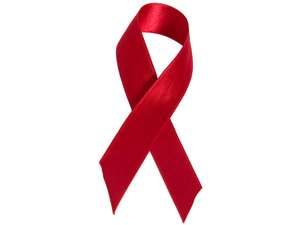
World AIDS Day takes place on the 1st December each year, and is an opportunity for people worldwide to unite in the fight against HIV, to show support and to commemorate those who have died from an AIDS-related illness.
NTW is observing World AIDS Day with an information and awareness stand and a red ribbon sale with all proceeds going to the National AIDS Trust.
The NTW LGBT+ Network and NTW Unison branch are hosting a stall outside St. Nicholas Café on Friday 30 November 2018 from 11.30am – 2.30pm. There will be literature to read, conversations to engage in and a chance to buy your red ribbon for £1. All proceeds will go to the National AIDS Trust.
Since being identified in 1984, more than 35 million people have died of HIV or AIDS.
Today, scientific advances have been made in HIV treatment, there are laws to protect people living with HIV and we understand so much more about the condition.
Despite this, each year in the UK around 5,000 people are diagnosed with HIV. People still do not know the facts about how to protect themselves or others.
Simon Pearson, Chair of NTW’s LGBT+ network, said: “World AIDS Day is important because it reminds us that HIV has not gone away and there is still a need to increase awareness, fight prejudice and to improve education.”
Simon added: “Diagnoses are falling in the UK, meaning the spread of the virus is slowing down, but there are still 101,000 people living with HIV in the UK, there is no cure and people still face ignorance and discrimination. We must continue to build on this progress to end new transmissions for good.”
Being HIV+ means you are more likely to live in poverty, and more likely to have poor mental health. There is a 30% prevalence of depression and anxiety compared to 20% in the general population. The suicide rate for HIV positive men in the first year after diagnosis is over five times higher than that for men in the general population. People living with HIV have on average three times as many long-term health conditions as the general population.
Although the epidemic is slowing in the UK, nearly half of people who test positive are finding out they have HIV very late, meaning the virus may have damaged their health permanently.
The Joint United Nations Programme on HIV/AIDS (UNAIDS) has more information on World AIDS Day on their website at https://knowyourstatus.unaids.org/
